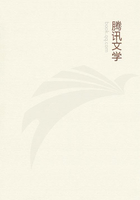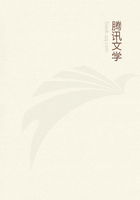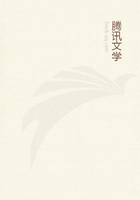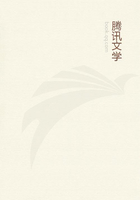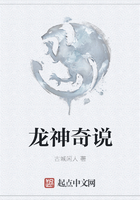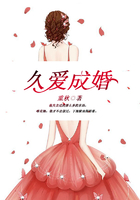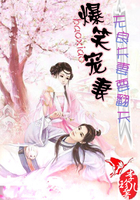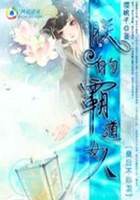The author says nothing about Shakespeare not being his real name, nor about his fear lest his real name should be discovered. He even 'quibbles on his own Christian name,' WILL, as Mr. Phillipps and everyone else have noted. What he means is: 'Why am I so monotonous that every word almost tells my name?' 'To keep invention in a noted weed' means, of course, to present his genius always in the same well-known attire. There is nothing about disguise of a name, or of anything else, in the sonnet.*
*Webb, pp. 64,156.
But Judge Webb assures us that Shakespeare himself informs us in the sonnets that 'Shakespeare was not his real name, but the noted weed in which he kept invention.' As this is most undeniably not the case, it cannot aid his effort to make out that, in the Folio, by the name of Shakespeare, Ben Jonson means another person.
In the Folio verses, 'To the Memory of my Beloved, Mr. William Shakespeare, and What he has Left Us,' Judge Webb finds many mysterious problems.
Soul of the Age, The applause, delight, the wonder of our stage, My Shakespeare, rise!
By a pun, Ben speaks of Shakespeare as shaking a lance As brandish't at the eyes of Ignorance.
The pun does not fit the name of--Bacon! The apostrophe to 'sweet Swan of Avon' hardly applies to Bacon either; he was not a Swan of Avon. It were a sight, says Ben, to see the Swan 'in our waters yet appear,' and Judge Webb actually argues that Shakespeare was dead, and could not appear, so somebody else must be meant! 'No poet that ever lived would be mad enough to talk of a swan as YET appearing, and resuming its flights, upon the river some seven or eight years after it was dead.'* The Judge is like the Scottish gentleman who when Lamb, invited to meet Burns's sons, said he wished it were their father, solemnly replied that this could not be, for Burns was dead. Wordsworth, in a sonnet, like Glengarry at Sheriffmuir, sighed for 'one hour of Dundee!' The poet, and the chief, must have been mad, in Judge Webb's opinion, for Dundee had fallen long ago, in the arms of victory. A theory which not only rests on such arguments as Judge Webb's, but takes it for granted that Bacon might be addressed as 'sweet Swan of Avon,' is conspicuously impossible.
*Webb, p. 134.
Another of the Judge's arguments reposes on a misconception which has been exposed again and again. In his Memorial verses Ben gives to Shakespeare the palm for POETRY: to Bacon for ELOQUENCE, in the 'Discoveries.' Both may stand the comparison with 'insolent Greece or haughty Rome.' Shakespeare is not mentioned with Bacon in the 'Scriptorum Catalogus' of the 'Discoveries': but no more is any dramatic author or any poet, as a poet. Hooker, Essex, Egerton, Sandys, Sir Nicholas Bacon are chosen, not Spenser, Marlowe, or Shakespeare. All this does not go far to prove that when Ben praised 'the wonder of our stage,' 'sweet Swan of Avon,' he meant Bacon, not Shakespeare.
When Judge Webb argued that in matters of science ('falsely so called') Bacon and Shakespeare were identical, Professor Tyrrell, of Trinity College, Dublin, was shaken, and said so, in 'The Pilot.'
Professor Dowden then proved, in 'The National Review,' that both Shakespeare and Bacon used the widely spread pseudo-scientific ideas of their time (as is conspicuously the case), and Mr. Tyrrell confessed that he was sorry he had spoken. 'When I read Professor Dowden's article, I would gladly have recalled my own, but it was too late.' Mr. Tyrrell adds, with an honourable naivete, 'I AM NOT VERSED IN THE LITERATURE OF THE SHAKESPEAREAN ERA, and I assumed that the Baconians who put forward the parallelisms had satisfied themselves that the coincidences were peculiar to the writings of the philosopher and the poet. Professor Dowden has proved that this is not so. . . .' Professor Dowden has indeed proved, in copious and minute detail, what was already obvious to every student who knew even such ordinary Elizabethan books as Lyly's 'Euphues' and Phil Holland's 'Pliny,' and the speculations of such earlier writers as Paracelsus. Bacon and Shakespeare, like other Elizabethans, accepted the popular science of their period, and decorated their pages with queer ideas about beasts, and stones, and plants; which were mere folklore. A sensible friend of my own was staggered, if not converted, by the parallelisms adduced in Judge Webb's chapter 'Of Bacon as a Man of Science.' I told him that the parallelisms were Elizabethan commonplaces, and were not peculiar to Bacon and Shakespeare. Professor Dowden, out of the fulness of his reading, corroborated this obiter dictum, and his article (in 'The National Review,' vol. xxxix., 1902) absolutely disposes of the Judge's argument.
Mr. Tyrrell went on: 'The evidence of Ben Jonson alone seems decisive of the question; the other' (the Judge, for one) 'persuades himself (how, I cannot understand) that it may be explained away.'*
*Pilot, August 30, 1902, p. 220.
We have seen how Judge Webb 'explains away' the evidence of Ben.
But while people 'not versed in the literature of the Shakespearean era' assume that the Baconians have examined it, to discover whether Shakespearo-Baconian parallelisms are peculiar to these two writers or not, these people may fall into the error confessed by Mr.
Tyrrell.
Some excuse is needed for arguing on the Baconian doctrine. 'There is much doubt and misgiving on the subject among serious men,' says Judge Webb, and if a humble author can, by luck, allay the doubts of a single serious man, he should not regret his labour.

